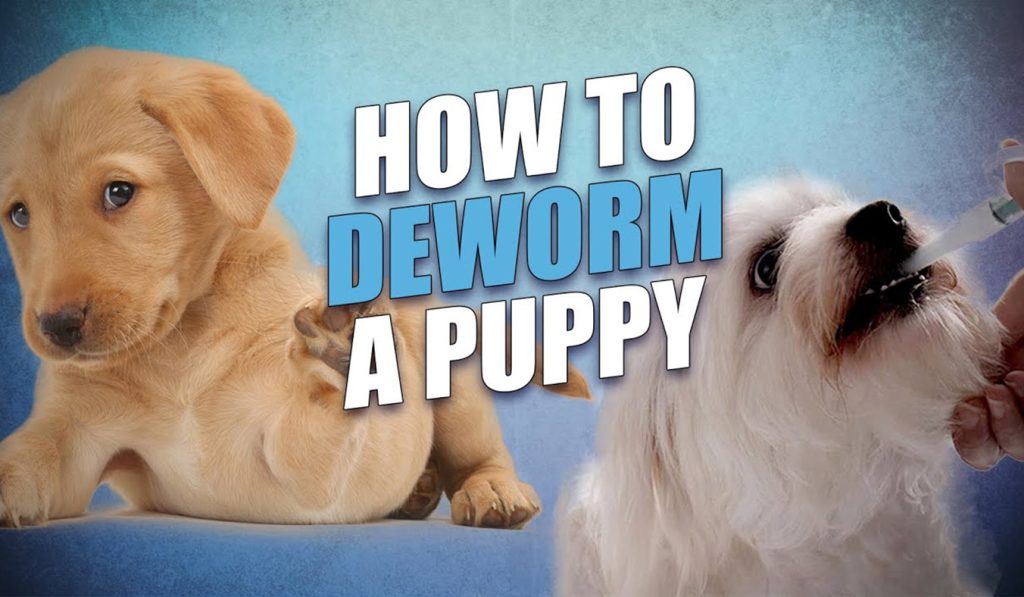A new puppy has joined your family? That’s wonderful news! However, have you considered treating your puppy with an appropriate dewormer? Small parasites, particularly intestinal worms, are common in puppies. These parasites can multiply in your puppy’s digestive tract, and sometimes in their lungs or heart, causing health and wellness issues. Deworming is crucial to ensure your puppy’s health. But what exactly is deworming? It involves killing intestinal worms and other parasites using medication. If your puppy is infected, it’s important to act quickly.
Comprehensive Guide to Deworming Your Puppy
1. Recognize the Early Signs of Worm Infection
Identifying the need for deworming is crucial for your puppy’s health. Watch for the following symptoms, which may indicate a parasitic infection:
- Itching and Scratching: Excessive scratching or biting at the skin could suggest external parasites like fleas or internal parasites such as mites.
- Dull or Patchy Coat: A lackluster or rough coat can be a sign of poor health due to internal parasites.
- Coughing and Fever: Persistent coughing, especially if accompanied by a fever, may be linked to worms affecting the respiratory system, such as heartworms or lungworms.
- Digestive Issues: Diarrhea, vomiting, bloating, or an upset stomach are common signs of worm infestations, especially roundworms or hookworms.
- Behavioral Changes: Decreased appetite, unexplained weight loss, lethargy, and pale or discolored gums can indicate severe parasitic infections.
Regular observation and prompt action upon noticing these signs are crucial for maintaining your puppy’s health and well-being.
2. Adhere to a Deworming Schedule
A consistent deworming schedule helps control and prevent worm infestations effectively:
- Start Early: Begin deworming as early as 2 weeks of age, as puppies are often born with parasites acquired from their mother. Administer deworming every 2 weeks until they are 3 months old.
- Monthly Deworming: Between 3 and 6 months of age, continue deworming your puppy once a month. This helps address any parasites that might have developed despite the early treatment.
- Reduced Frequency: After 6 months, you can typically deworm your puppy 3 times a year. Adjust the frequency based on your puppy’s risk factors.
- Environment-Based Adjustments: Puppies that spend a lot of time outdoors or in environments with high exposure to other animals might require more frequent deworming. Adjust the schedule according to your puppy’s lifestyle and risk of exposure.

3. Weigh Your Puppy for Accurate Dosage
Ensuring the correct dosage of dewormer is crucial for effectiveness and safety:
- Accurate Weight Measurement: Regularly weigh your puppy using a pet scale or a home scale. Accurate weight measurement is essential for determining the correct dosage of the dewormer.
- Follow Dosage Instructions: Always adhere strictly to the dosage instructions provided with the dewormer. Dosage is often determined based on weight, and incorrect dosing can lead to ineffective treatment or adverse reactions.
4. Choose a Convenient and Effective Dewormer
Selecting the right form of dewormer can make the process easier and more effective:
- Pills: Traditional tablets might be challenging to administer if your puppy is unwilling to take them. Consider pill pockets or disguising them in food if needed.
- Liquid Solutions: Liquid dewormers can be mixed with your puppy’s food or administered directly into their mouth. They can be a good option for puppies who are reluctant to take pills.
- Pastes: Flavored pastes can be more palatable and easier to administer. They often come in syringe form for easy application.
- Pipettes (Topical Solutions): These are applied to the skin, usually between the shoulder blades, and can be effective for various parasites. Topical solutions are generally well-tolerated and avoid the need for oral administration.
Choose the form that best fits your puppy’s preferences and your ability to administer the medication comfortably. Each method has its own advantages, and your choice may depend on your puppy’s temperament and ease of administration.
Additional Considerations:
- Consult Your Veterinarian: Regular check-ups with your vet can help determine if your puppy needs deworming beyond the scheduled intervals. Your vet can also provide guidance on the most suitable dewormer and schedule for your puppy’s specific needs.
- Monitor for Side Effects: Watch for any adverse reactions to the dewormer, such as vomiting, diarrhea, or signs of an allergic reaction. If any side effects occur, consult your veterinarian immediately.
Following these guidelines will help ensure that your puppy remains healthy and free from parasitic infections.
5. Use Tricks to Administer the Dewormer
Administering medication can be tricky, but here are some tips:
- Syringe Administration: A graduated syringe can be useful for liquid dewormers. Gently administer the medication to avoid spillage.
- Hide in Food: If your puppy is reluctant, hide the medication in their favorite food or use a special treat designed for administering medication.
- Make It a Game: For playful puppies, incorporating the medication into playtime or rewards can make the process smoother.
Using these strategies can make the experience less stressful for both you and your puppy.
6. Ensure the Dewormer is Fully Swallowed
Confirm that your puppy has swallowed the medication:
- Observe Your Puppy: After administering the dewormer, watch to ensure your puppy doesn’t spit it out or vomit.
- Check for Residual Medication: If the medication was regurgitated, it won’t be effective. Administer another dose if necessary and consult your vet.
7. Deworm Regularly for Long-Term Health
Consistency is key for effective parasite control:
- Seasonal Deworming: Consider deworming your puppy with each seasonal change to maintain protection.
- Include Other Pets: Ensure that all pets in your household are also dewormed to prevent re-infection.
- Protect Family Members: Intestinal parasites can potentially affect humans, especially children and those with weakened immune systems. Regular deworming helps reduce this risk.

Takeaway!
Deworming your puppy promptly at the first sign of infection is crucial. Follow a deworming schedule and adjust based on your puppy’s environment. Pay close attention to the dosage based on weight, and choose a dewormer that is easy to administer. Ensure that your puppy has swallowed the medication properly and keep up with regular deworming to protect their health. If you have any doubts or face difficulties, consult your veterinarian for guidance.



